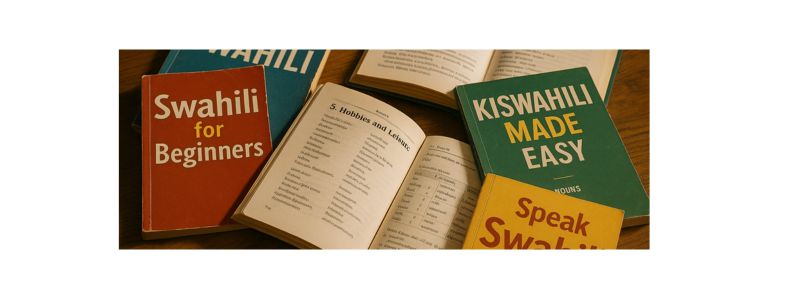
Why Uganda’s Mubarak Munyagwa’s got it all wrong to ban Swahili
Share

Meet Ugandan presidential hopeful Mubarak Munyagwa. Mr Munyagwa recently declared on the campaign trail that he would ban Swahili in schools and public offices, replacing it with French. The nation already has English as its official language, but one European language is not enough for Mr Munyagwa. His wish is for his citizens to be multilingual in European tongues and less lingual in their mother tongue.
He's NOT got our vote that's for certainty (that's if we could vote in the upcoming Ugandan elections).
Mr Munyagwa believes that the move would lead to better communications with their neighbouring countries, which are largely French speaking by way of the Berlin Conference. We think he's underestimating the potential of Swahili. Because if there’s one language with the power to connect the continent, from Dar es Salaam to Dakar, it’s Swahili.
The rise of Swahili
Swahili isn’t just a regional dialect anymore; it’s becoming Africa’s most influential indigenous language. Spoken across more than a dozen countries, from Kenya to South Africa, Swahili now enjoys official status with the African Union, the East African Community, and the Southern African Development Community. In 2021, UNESCO even declared July 7th as World Kiswahili Language Day, celebrating its role as a symbol of African pride and unity.
Unlike colonial languages like English or French, Swahili was born on African soil, and shaped by trade, migration, and culture. It belongs to Africans. And that’s exactly why it could become the language that unites a continent divided by borders drawn in Europe.
Why Swahili makes sense as Africa’s common language
If Dr Kwame Nkrumah's dream of a United States of Africa is ever fulfilled, then Swahili would be a leading candidate as lingua franca. Here’s why.
1. Widespread usage
Swahili is already the most widely spoken indigenous language in Africa, with more than 200 million speakers. It stretches far beyond its East African roots, and is spoken in more than 10 African countries, including Tanzania, Kenya, Uganda, the Democratic Republic of Congo, Rwanda, Burundi, Malawi, Mozambique, Somalia, South Africa, and even parts of the Middle East. That reach means it’s already doing what many African leaders dream of: uniting people across borders.
2. Growing recognition
Swahili’s rise isn’t accidental. It’s being recognised at the highest levels. The African Union (AU) adopted Swahili as an official working language in 2022, joining English, French, Arabic, and Portuguese. The East African Community (EAC) and Southern African Development Community (SADC) have also embraced it as a language of administration and unity. And when UNESCO declared July 7 as World Kiswahili Language Day, it wasn’t just celebrating a language, it was acknowledging a growing movement to reclaim Africa’s linguistic identity.
3. Cultural and political unity
For centuries, Africa has been linguistically divided by colonial influence. Swahili offers a decolonised alternative. A language born in Africa, shaped by Africa, and spoken by Africans. A shared African language could strengthen not only identity but also cooperation across borders. It’s the kind of unity the African Continental Free Trade Area (AfCFTA) and Pan-African movements have long envisioned.
4. Economic benefits
Language is infrastructure. A common African language like Swahili could make trade smoother, reduce translation barriers, and open up intra-African markets. Imagine an entrepreneur in Ghana negotiating directly with a supplier in Kenya, or students across the continent sharing research in a shared African language. Swahili could make that reality possible.
5. Accessibility and connectivity
Swahili’s vocabulary is about 40% derived from Arabic, giving it a familiar ring for many in North Africa and across Islamic regions. That linguistic overlap bridges a cultural gap between the Maghreb and Sub-Saharan Africa, making Swahili a truly pan-African connector.
Here at Tribal Tongue, we are firmly in the native African languages camp and will not be endorsing any political candidates that intend to erase them. Just getting that out there!
We are also currently working on our Swahili Talking Flashcards, which will be with you soon. Sign up to our mailing list below to stay updated on new language drops. And check out our Igbo, Twi, Yoruba versions in the meantime.
If you like this, read The English words with African roots
